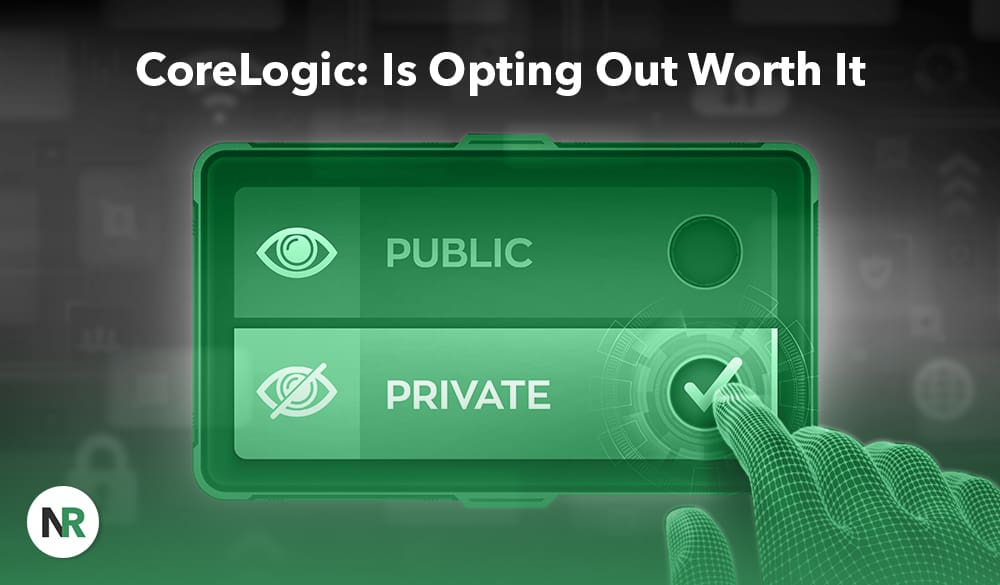This article delves into understanding CoreLogic and the reasons for opting out. It explores CoreLogic’s purpose, data collection practices, and the benefits of opting out. It highlights the risks of not opting out, outlines the request process, and presents alternative options. Ultimately, it aims to determine whether opting out of CoreLogic is advisable.
Key Takeaways:
- Opting out of CoreLogic may protect your personal information and privacy.
- The opt-out process may be time-consuming, and there are alternative companies that offer similar services.
- Experts have mixed opinions on whether opting out of CoreLogic is worth it, as there may be both potential consequences and benefits.
What is CoreLogic?
CoreLogic is a prominent data collection company renowned for its extensive databases and analytics prowess in the United States. Its global footprint extends beyond American borders, offering vital insights and solutions worldwide. Leveraging advanced technologies, CoreLogic efficiently gathers, organizes, and analyzes vast data volumes to provide actionable intelligence. With comprehensive offerings across real estate, finance, and insurance sectors, it meets diverse industry requirements. CoreLogic’s dedication to innovation and precision has established it as a trusted provider of reliable information, setting benchmarks for data excellence.
What is the Purpose of CoreLogic?
CoreLogic’s core mission revolves around the collection, analysis, and secure provision of extensive personal and property-related data across various industries. They cater to insurers, rental firms, and consumer reports, offering detailed insights from personal information to facilitate informed action and decision-making based on market trends and risk evaluations.
CoreLogic is steadfastly committed to data privacy and security and implements robust encryption methods and stringent protection measures to safeguard sensitive information while delivering valuable insights. The data types collected include property ownership details, financial records, and behavioral information, enabling comprehensive market analysis, risk assessment, and client audience profiling.
Why Would Someone Want to Opt Out of CoreLogic?
Opting out of CoreLogic is driven by privacy concerns, consent management desires, and the need to mitigate risks associated with widespread information sharing. In an era where personal data is constantly amassed and utilized, individuals increasingly opt-out to safeguard against potential misuse or unauthorized access to their sensitive information.
Consent management becomes crucial as individuals seek greater control over who accesses their data and for what purposes, reflecting growing awareness of data privacy regulations. Moreover, opting out offers individuals a means to assert control over their personal information, especially in light of prevalent data breaches and unauthorized data sharing. Not opting out poses risks such as data security vulnerabilities, limited risk mitigation options, and exposure to privacy breaches, potentially leading to financial fraud, identity theft, or other cybercrimes.
Opting out of CoreLogic: Process and Timeline
Opting out of CoreLogic is driven by concerns over privacy, consent management, and the need to mitigate risks related to widespread information sharing. In an age where personal data is extensively collected and utilized, individuals opt-out to protect against potential misuse or unauthorized access to their sensitive information. With a focus on consent management, individuals aim for greater control over who accesses their data and for what purposes, reflecting a growing awareness of data privacy regulations.
Opting out empowers individuals to take control of their personal information, particularly amidst prevalent data breaches and unauthorized data-sharing incidents. Failure to opt out exposes individuals and businesses to data security vulnerabilities, limited risk mitigation options, and potential privacy breaches, which could lead to financial fraud, identity theft, or other cybercrimes.
Exploring Alternatives and Privacy Policies: Companies Similar to CoreLogic
For individuals exploring alternatives to opting out of CoreLogic, engaging with local data protection authorities, considering other data brokers, or implementing measures to limit information sharing can help safeguard personal privacy. Local data protection authorities offer valuable guidance on rights and protections while adjusting privacy settings and using encryption tools, which can help clients proactively manage data control.
Several companies operate similarly to CoreLogic, including Acxiom, which provides targeted marketing solutions based on extensive data analytics. Consumer-focused property companies like Zillow and Redfin offer personalized property recommendations and market insights. Legal entities such as LexisNexis specialize in providing comprehensive legal information and analytics services.
These companies’ privacy policies vary. Some prioritize user data protection through strict cookie policies, while others acquire data from electoral rolls or social media sites. Practices like tracking user behavior, building tailored experiences, and utilizing cookies for targeted advertising raise concerns about privacy and data security in today’s interconnected world.
Assessing the Worth of Opting Out of CoreLogic: Consequences, Benefits, and Expert Opinions
The decision to opt out of CoreLogic hinges on individual privacy preferences, perceptions of data usage implications, and alignment with personal privacy standards regarding email communications and data-sharing practices.
It involves weighing the balance between convenience and privacy protection, with increasing concern over data usage transparency and security measures. The potential consequences of opting out include limited access to tailored insurance products and restricted data-sharing partnerships, particularly affecting life insurance coverage.
However, opting out offers benefits such as enhanced data protection for property owners, increased privacy measures for rental companies, and greater control over personal information shared within the data ecosystem. Expert opinions on opting out vary, with some emphasizing adherence to privacy regulations, others advocating for proactive consent management, and some prioritizing robust risk mitigation strategies to safeguard against data breaches and unauthorized access.
